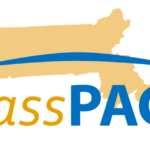
One benefit that is often overlooked is Community Medicaid. Community Medicaid, a means tested program, is a governmental program that helps pay for care at home. As a general rule, Community Medicaid will pay up to 28 hours of care per week at home. Specifically, a certified home health aide or personal care attendant to provide assistance with eating, bathing; dressing; ambulation; and toileting to name a few. Private agencies generally charge $25-$30 per hour for such care which can be burdensome for families. In addition, many Adult Day Health Centers accept Community Medicaid. It may be necessary to hire an attorney who restricts his or her practice to elder law and Medicaid planning to navigate the complicated rules to qualify clients for this benefit.
Some of the Community Medicaid Programs include:
1. Community Choices Program: which is designed for the frailest seniors to provide intensive services to those who are at imminent risk of nursing home placement.
2. Personal Care Attendant (PCA) Program: which is designed to give individuals with long-term disabilities both control over how their own personal care needs are met and the choice to live at home independently.
3. Program of All Inclusive Care for the Elderly (PACE): which is a comprehensive program for assisting older adults to stay in the community (some PACE programs pay for care at some Assisted Living Facilities).
4. Caregiver Homes Program: which is an Adult Foster Care Program that pays for an adult child, relative or friend who lives with the senior (not including a spouse) to care for the senior at home.
The general rule for Community Medicaid is the recipient’s gross monthly income must be $2,382 or less (a well spouse’s income does not count). Also, generally no more than $2,000 in assets (not counting the home) may be kept in the recipient’s name. As of 2021, Medicaid could possibly impose a penalty period on transfers for community base benefits. Therefore should a senior have more than $2,000, the transfer of excess assets could possibly affect community based Medicaid eligibility (Although any such transfer could affect nursing home Medicaid eligibility in the future).
A problem shared is a problem cut in half. Let our experts help you. Initial consultations are at no cost.








